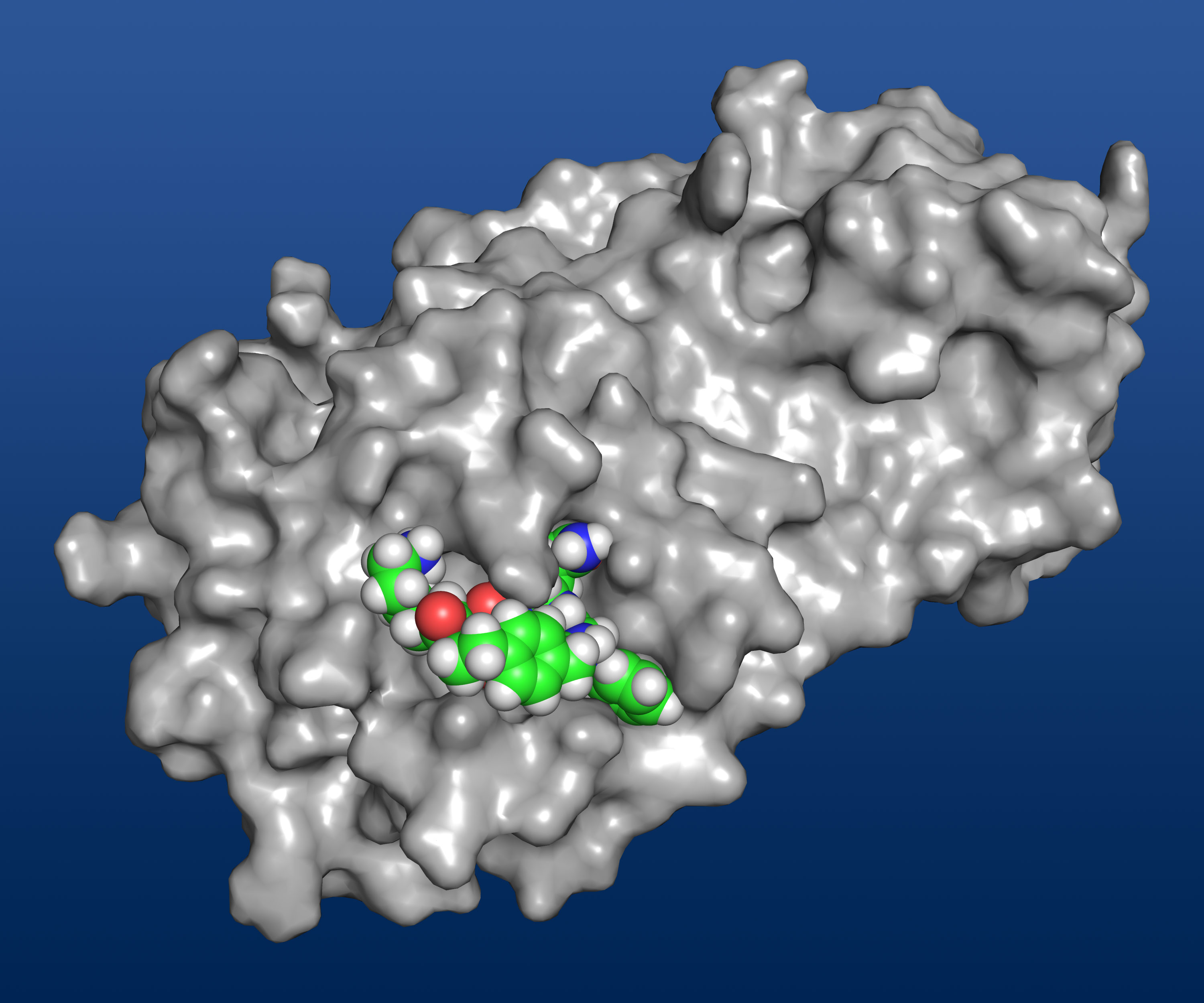UC Irvine lab makes coronavirus-crippling molecule, a first step toward a new drug

A molecule called a macrocycle created in the laboratory of UC Irvine chemistry professor James Nowick binds onto coronavirus particles to prevent it from replicating.
A team of UC Irvine chemists have created a molecule that acts as a false key to latch onto an enzyme needed by the coronavirus to reproduce.
The recently announced discovery could be an important first step in developing a drug to treat COVID-19.
James Nowick, a professor of chemistry and pharmaceutical sciences who runs a lab that specializes in building molecules, described the coronavirus enzyme as a lock.
“The natural molecules that the enzyme binds to are sort of like keys that fit the lock and can turn it,” he said. “Doing so allows the virus to replicate within an infected cell.”
Nowick’s lab has essentially invented a fake key – a macrocycle, in scientific terms – to fit in that lock, but not turn it. “The fake key blocks the actual keys from fitting into the lock.”
This is important because the coronavirus, like other viruses, forces infected cells to make new pieces of itself using an enzyme called a protease, which is like an microscopic industrial cutter that slices up new coronavirus proteins to spread around the body.
With a fake key in the lock, the replication stops, Nowick said.
A similar fake-key strategy is used in certain drugs for treating HIV, but because that virus is so different than the new coronavirus that causes COVID-19, the same macrocycle keys can’t be used for both.
Following this discovery, the next step for Nowick’s lab and others is to try to improve on this work, making a key that fits the coronavirus enzyme even better.
“Then we have to see if it can work to stop coronaviruses from infecting cells, and eventually animals,” he said. “Additional studies have to be done with animals to make sure that it will not be harmful. Only then is it ready to try in humans to determine if it is safe and effective.”
The project, which started in April was spearheaded by Adam Kreutzer, a scientist in Nowick’s group. The team is calling the new macrocycle University of California, Irvine Coronavirus Inhibitor-1, or UCI-1 for short.
Now, Nowick said, comes one of the best things about science: collaboration with peers who will try to build on this progress.
One reason this discovery is important, Nowick said, is because when a COVID-19 vaccine comes around, it might not be 100% effective.
“So we may still need drugs,” he said. “A drug could eventually even be a preventative for those who cannot, or will not, take vaccines, or for those whom a vaccine does not provide immunity.”
A COVID-19 drug would be a useful treatment for the sick, and could be administered through an IV or pills.
This new coronavirus won’t be the last, Nowick said, citing the SARS outbreak in the early 2000s and MERS in 2012.
“Doing the science now to invent drugs will not only help with COVID-19,” he said, “but may give us treatments for future coronavirus epidemics.”
